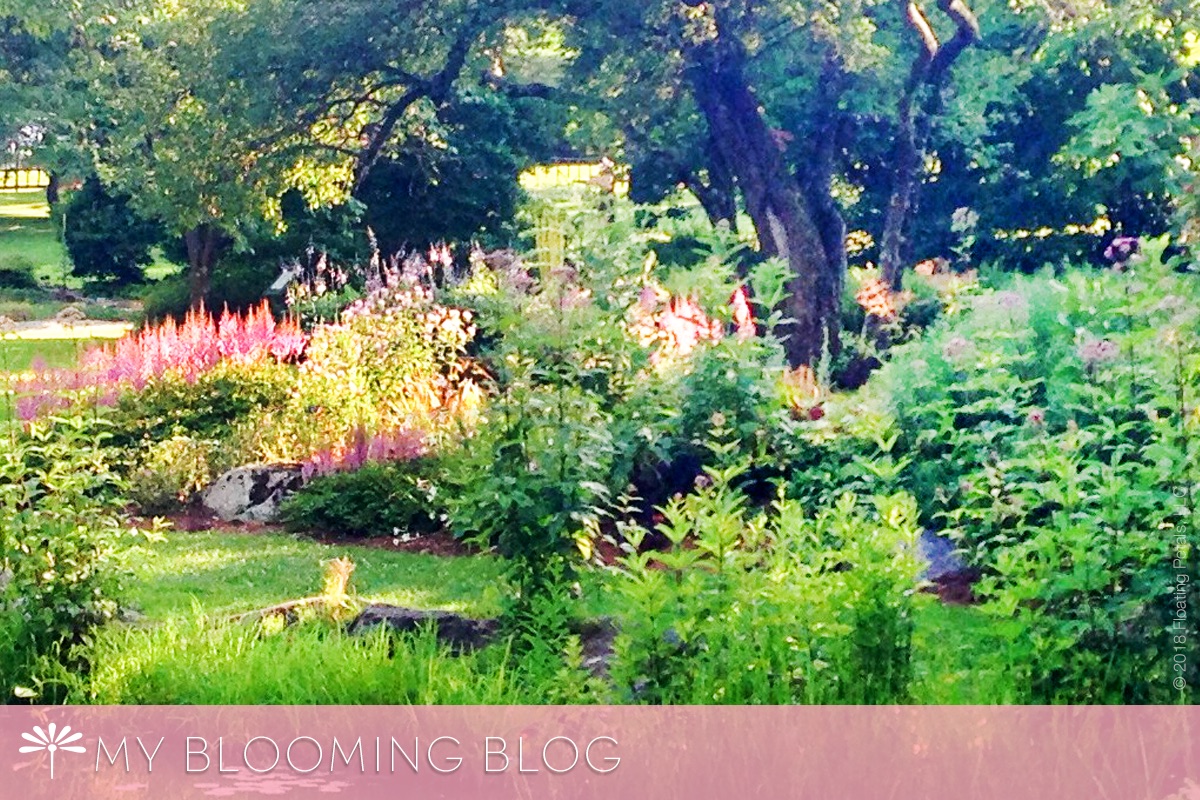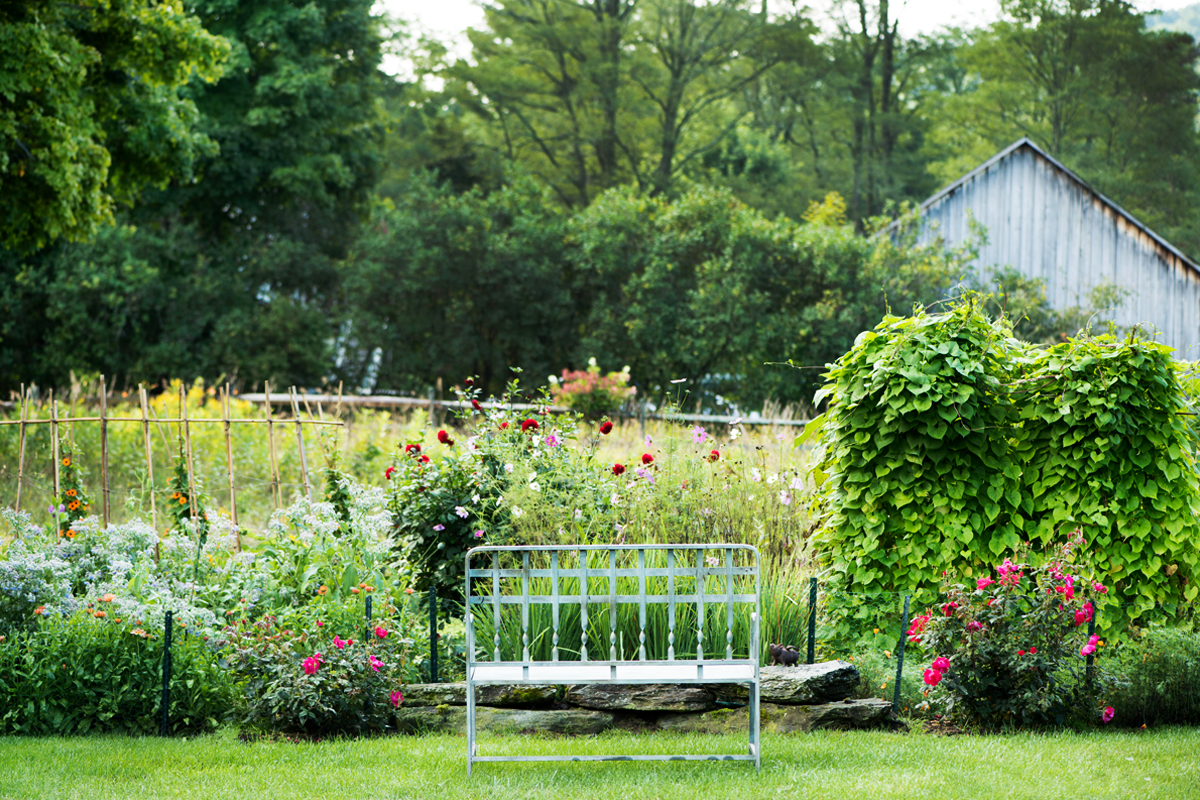
Last weekend in Westport, CT I attended one of Terrain’s Coffee and Conversation Events: Preparing the Spring Garden. I was there to get the real “dirt” on how to prepare my garden. Angela Truck, who is their Exterior Design Specialist, lead the conversation. As I have found from the other Coffee and Conversations, she has a wealth of knowledge and information. I learn something new every time.
By getting your soil tested, you are laying the foundation for your garden for the rest of the season.
~ Angela Truck, Terrain
What I learned most this time was about getting my soil tested. I must admit that I have known I should get it tested, but I have never done it in the twelve years I have gardened in Vermont. Angela said, “by getting your soil tested, you are laying the foundation for your garden for the rest of the season.” Spring or fall are the best times to test it, giving you time to amend your soil.
6 Steps for testing the soil and preparing your spring garden:
- Clean your supplies: spade, bucket, trowel, Ziploc bag and Sharpie pen (or soil testing kit).
- Use your spade to clean any debris such as mulch, leaves, etc, from the sample area.
- Using your trowel, dig about 6-8” deep and put a sample of dirt in the bucket.
- You will want to get samples from at least three to five different areas in your garden. Then mix the dirt together in the bucket. Note: if you have numerous separate gardens, you may want to test each garden separately.
- Put a pint of the mixed dirt into a Ziplock bag or the soil testing kit. Note: if the dirt is wet or damp, dry it on a newspaper before packaging. Mark it with a specific name for that garden: Patio Garden, Cutting Garden, Shade Garden, Lawn, etc.
- Mail off your sample to your local university or soil testing place. There are many place to get your soil tested including Lowe’s and Home Depot.
Once you receive the results of the test, it will include recommendations on how to amend your dirt, such as adding specific types and amounts of fertilizer at ideal times. It’s all about a balanced pH. For perennial gardens, you want to have 6-7.5 pH (the measure of acidity/alkaline). All flowers have different needs, but this number gives a good balance for your plants. You don’t need to know a lot about pH in order to amend your soil. All you need to do is follow their recommendations to get your dirt and garden balanced again.
So, let’s get our soil tested and have the most wonderful gardens we could ever dream of! I will, though, have to wait for the snow to melt and the ground to soften, but I’m excited to see where this will take my gardens.
Share with me below: What benefits have you found from testing your soil?
FEATURED GARDEN
The featured image at the top of this post was photographed @ Berkshire Botanical Garden.
P.S. If you have never been to Terrain, I highly recommend going there. I have been to both the one in Westport, CT and the original Terrain in Glen Mills, PA. They are both so unique. I could spend all day there wandering through their garden center and store. Both have everything from home, kitchen, personal care and gifts along with lovely restaurants. There are other locations in Walnut Creek, CA and Palo Alto, CA too.
Need moments in your week just for you, to connect to nature and bring the beauty of flowers into your view? Sign up to be a Floating Petals member for FREE and experience the 400,000+ flowers that petal our world.
previous post next post
- Archives

- January 2020
- December 2019
- November 2019
- October 2019
- September 2019
- August 2019
- July 2019
- June 2019
- May 2019
- April 2019
- March 2019
- February 2019
- January 2019
- December 2018
- November 2018
- October 2018
- September 2018
- August 2018
- July 2018
- June 2018
- May 2018
- April 2018
- March 2018
- February 2018
- January 2018
- December 2017
- November 2017
- October 2017
- September 2017
- August 2017
- July 2017
- June 2017
- May 2017
- April 2017
- March 2017
- February 2017
- January 2017
- December 2016
- November 2016
- October 2016
- September 2016
- August 2016
- July 2016
- October 2015
- September 2015
- August 2015
- July 2015
- June 2015
- May 2015
- April 2015
- March 2015
- February 2015
- January 2015
- December 2014
- November 2014
- October 2014
- September 2014
- Categories

- Autumn
- Bees
- Botanical Gardens
- Bulbs
- Butterflies
- Contests
- Cutting Room Floor
- Dirt
- Featured Flowers
- Featured Garden
- Featured Gardens
- Floating Petals
- Floral Travels
- Flower Gifts
- Friday's Flower Fact
- Gratitude
- Herbs
- Holidays
- Inspiration
- Latest News
- Lessons From Flowers
- Monday's Flower Quote
- My Garden
- Photography
- Seasons
- Seeds
- Spring
- Summer
- Tidbits
- Uncategorized
- Weather
- Weeds
- Wildflowers
- Winter












I love all of the photos and thank you for sharing the details for creating a great garden. I so enjoy all of the beauty you so generously share.
Thank you!